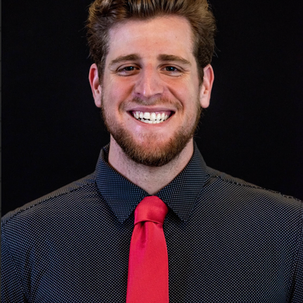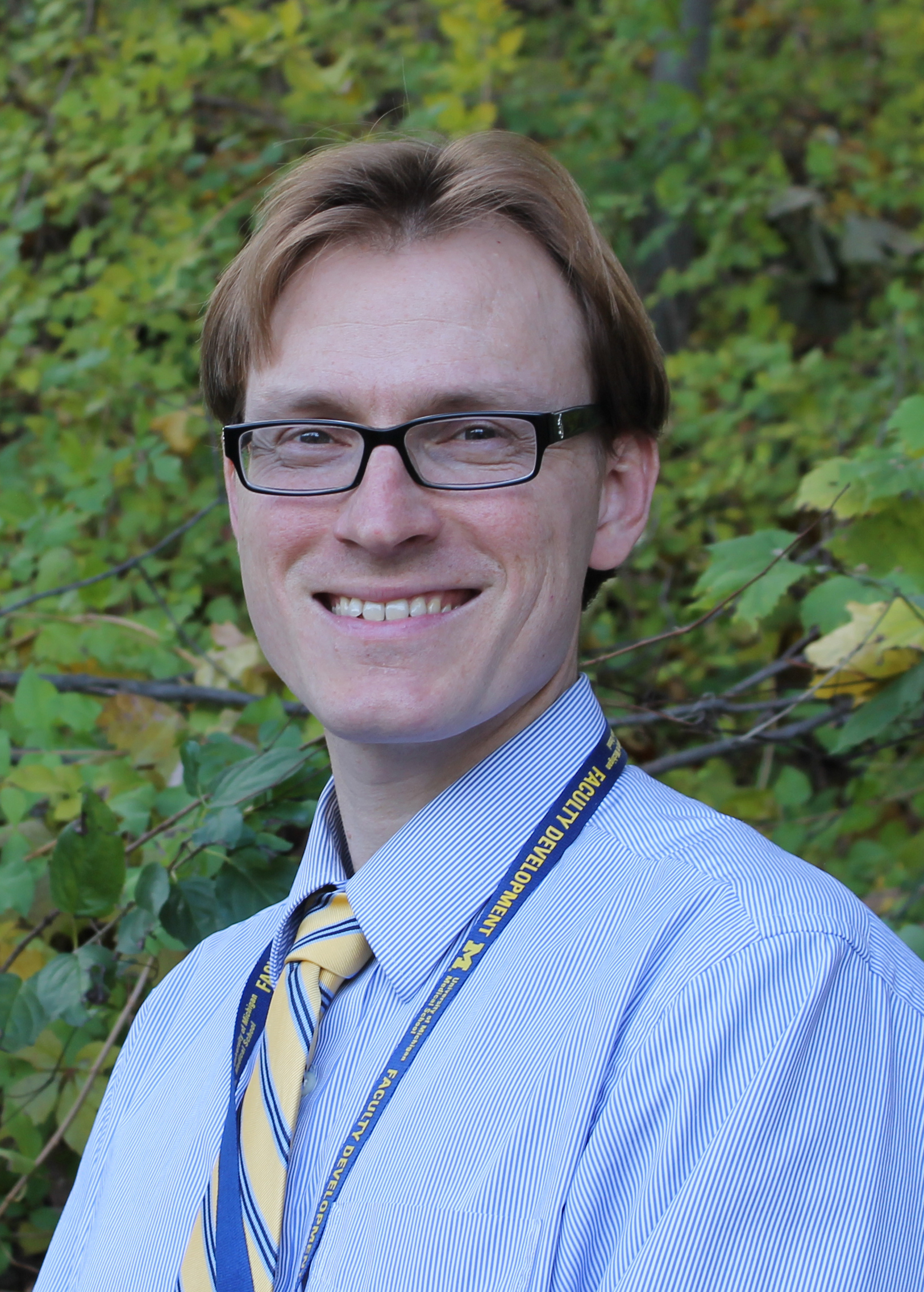Michigan Medicine has a commitment to respecting the diversity of all patient populations and creating structural change that promotes health equity. MDisability, a program supported by the Department of Family Medicine, is helping in those efforts by offering educational opportunities that train medical students on meeting patients with disabilities ‘where they are.’
Case in point: second year University of Michigan Medical School students Emaun Irani and Gabriel Abrams, who recently encountered a Deaf mother who had just given birth and needed to know a few tips about caring for her baby and things to watch out for.
Irani, a former special education instructor, had taken two courses in American Sign Language (ASL), offered through MDisability and the University of Michigan Medical School. He was able to teach Abrams and the attending pediatrician some basic signs to communicate with the mother.
“We mainly wanted to learn about the mother, review her information, and go over introductions,” Irani said.
Irani and the team were able to introduce themselves and congratulate the mother in sign language. For all the medical aspects of the interaction, a Michigan Medicine staff interpreter was present.
“I think she definitely was a little surprised in a positive way and it seemed in our brief encounter that she was excited to have people who were trying their best to communicate with her,” Irani added. “Later on, when we went back to her room, the father was there, and the mother was communicating with him that medical students were using sign language to communicate with her. The attending physician took the time to learn how to introduce herself in ASL as well. It seemed to make them feel happy, welcome and comfortable.”
MDisability launched the ASL course in the Fall 2021 semester. Program Director Michael M. McKee, MD, MPH, associate professor in the Department of Family Medicine, as well as former MDisability interns and medical students, have kept it going. Approximately 90 students over the past four years have completed the one-credit medical school elective, which introduces them to Deaf culture, appropriate communication protocol, and practical signing skills, both general and medical-related. It also gives them the chance to hear first-hand from Deaf individuals about their experiences and challenges navigating healthcare.
The ASL course is an example of how medical students at U-M are gaining insight into the lived experiences of patients with disabilities and the importance of communicating with them in a way that demonstrates culturally-competent healthcare. MDisability also offers medical students a disability health elective several times a year. Additionally, for the last five years, the program has offered a unique and popular summer internship to upper-class level college, graduate-level and professional students from across the country who want to learn how to conduct disability-related research.
“MDisability is opening up opportunities for aspiring medical doctors and those practicing medicine to learn how critical it is to care for individuals with disabilities and to understand how ableist attitudes undermine equitable patient care,” McKee said. “Patients with disabilities, including those who are Deaf, encounter myriad challenges to accessing healthcare that puts their health at risk.
“We are building a pipeline that not only mobilizes our current efforts to eliminate these obstacles but strengthens the network of like-minded health professionals who can work together to address the concerns of all patients, no matter their disability status.”

Medical student Abrams, who plans to take the ASL course, is an example of a student who is passionate about caring for those with disabilities and has found mentors associated with MDisability. Abrams, in addition to his medical training, also serves as a producer and part of the research team on the Docs With Disabilities podcast. The podcast was created by Lisa Meeks, Ph.D., MA, a core MDisability member and associate professor in the Department of Family Medicine.
As the brother of a sibling with severe disabilities, Abrams understands why it’s critical for him as a doctor in training to build close relationships with patients so that they don’t feel like just a cog in the system.
“One of the challenges on any inpatient service is you’re trying to build rapport with the patient and the family, setting up the interaction to focus on (the patient) rather than what we as doctors have to say,” Abrams said.
Irani and Abrams said that though they are going through their medical training right now and aren’t able to do activities like an attending doctor, they are able to play a vital part in connecting with patients, thanks to their basic knowledge of sign language.
“Our knowledge is still building (but) we are valuable contributors to the medical team,” Irani said. “We’re not ordering medications, but we do have the gift of time with patients.”
Plus, by understanding a patient’s experience and communicating with them in their preferred language, rapport and trust is enhanced. Stronger bonds are also created by letting the patient know that they, as future doctors, are listening and taking them seriously, the two said.
“There are a lot of ways that we as future clinicians can have an impact on our patients and build meaningful relationships,” Abrams added. “It’s important, having providers who fully understand the limitations (that patients with disabilities) have to healthcare access. What that underscores is understanding your patients on a deep level where they feel they can share things with you.”
Christa A. Moran, NIC, MEd, CoreCHI, the Michigan Medicine staff ASL interpreter present at the interactions between Irani, Abrams, the attending physician, and the Deaf mother, emphasized how important it is that doctors have some understanding of the needs and experiences of patients with disabilities and/or whose primary language is not English. She said MDisability is contributing to those efforts at promoting the importance of diversity, equity, and inclusion among medical staff and patients.
“I believe that any time a provider -- and particularly these students -- are able to interact with their patients in this way, it makes the patients feel included,” she said.
She added that while it’s important to have the basic ability to communicate with patients, this does not replace using trained medical interpreters. Like any other language, it takes years to become fluent in ASL and additional intensive training to become a professional certified medical interpreter. However, being able to communicate greetings and casual conversation definitely adds to the patient’s clinical experience and makes them feel welcomed and respected.
Moran gives credit to MDisability and the medical school’s ASL course for creating a ripple effect with doctors who are growing more cognizant that not all patients have equal access to care.
“The skills taught in this course and an understanding of the challenges faced by this patient population goes beyond their years here at Michigan Medicine, “ she said. “It will go with them as they continue their medical careers and carry on as they teach others.
“If they have a Deaf patient in the future, they will be able to understand the importance of providing linguistically and culturally competent care,” she added. “The fact that Dr. McKee has this course is a key step in providing this kind of care. it speaks to the institution’s commitment to Diversity, Equity, and inclusion. Patients with disabilities and/or whose primary language is not English are some of the most marginalized patient populations in healthcare. We want these patients to feel that they belong and have access to safe, inclusive and equitable care. Through this course, these students are taking an important step in making that happen.”



